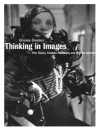In academic and public discourse, ‘mapping’ has become a ubiquitous term for epistemic practices ranging from surveys of scholarly fields to processes of data collection, ordering and visualization. Mapping captures patterns of distribution, segregation and hierarchy across socio-cultural spaces and geographical territories. Often lost in such accounts, however, is the experiential dimension of mapping as an aesthetic practice with determinate social, cultural and political effects. This volume draws on approaches from film philosophy, media archaeology, decolonial scholarship and independent film practice to explore mapping as a mediated experience in which film becomes entangled in larger processes of historical subject-formation, as well as in dissident reconfigurations of cultural memory. Proposing an approach to mapping through decolonial aesthetics and poetic thinking, the three essays in this volume help define a film studies perspective on mapping as a practice that structures political and aesthetic regimes, organizes and communicates shared realities, but also enables dissenting reconfigurations of concretely experienced worlds.
Sobre o autor
Erica Carter, King’s College London, United Kingdom; Bettina Malcomess, University of the Witwatersrand, Johannesburg, South Africa; Eileen Rositzka, Freie Universität Berlin / Cinepoetics, Berlin, Germany.












